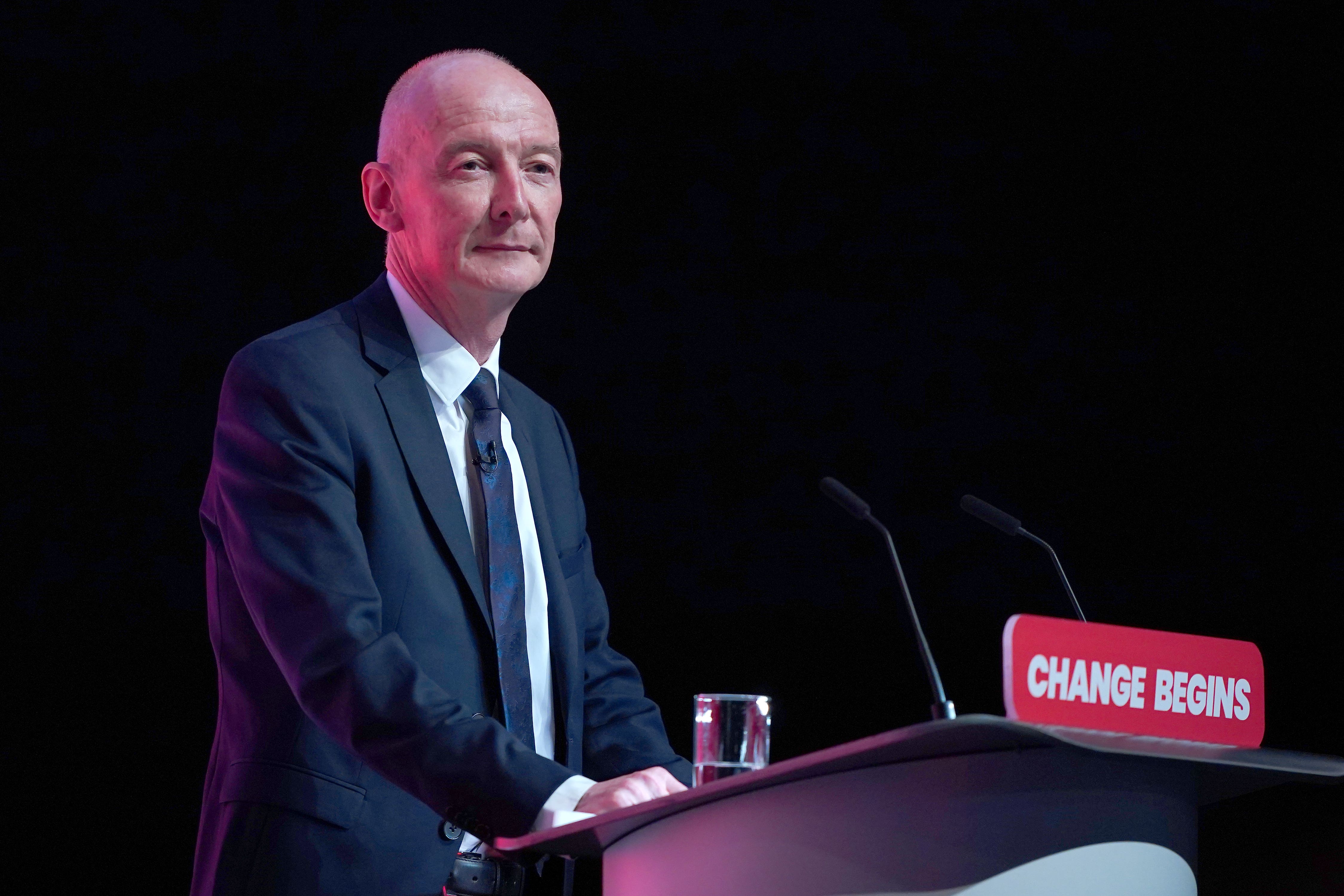Budget ‘most honest’ in years, Cabinet minister claims
Pat McFadden said Rachel Reeves’ first Budget will ‘end the fiscal fiction of things being announced which had no money set aside for them’.

Your support helps us to tell the story
From reproductive rights to climate change to Big Tech, The Independent is on the ground when the story is developing. Whether it's investigating the financials of Elon Musk's pro-Trump PAC or producing our latest documentary, 'The A Word', which shines a light on the American women fighting for reproductive rights, we know how important it is to parse out the facts from the messaging.
At such a critical moment in US history, we need reporters on the ground. Your donation allows us to keep sending journalists to speak to both sides of the story.
The Independent is trusted by Americans across the entire political spectrum. And unlike many other quality news outlets, we choose not to lock Americans out of our reporting and analysis with paywalls. We believe quality journalism should be available to everyone, paid for by those who can afford it.
Your support makes all the difference.A Cabinet minister has said he thinks this week’s Budget could be the “most honest” in years as the Prime Minister prepares to say that Wednesday’s statement will “embrace the harsh light of fiscal reality”.
Chancellor of the Duchy of Lancaster Pat McFadden said on Monday morning that Rachel Reeves’ first Budget will “end the fiscal fiction of things being announced which had no money set aside for them”.
His comments came ahead of a speech by Sir Keir Starmer later on Monday, in which he is expected to warn of “unprecedented” economic challenges.
Mr McFadden told BBC Radio 4’s Today programme: “I think you’re going to get the most honest Budget on Wednesday that you’ve had in many years.
“We’re going to end the fiscal fiction of things being announced which had no money set aside for them.”
In a speech, Sir Keir is expected to promise that the Budget will “ignore the populist chorus of easy answers” amid a series of expected tax rises, including an increase to employer national insurance by at least one percentage point.
Referring to the previous governments of Tony Blair and David Cameron, the Prime Minister will tell people during his speech: “This is not 1997, when the economy was decent but public services were on their knees.
“And it’s not 2010, where public services were strong, but the public finances were weak. These are unprecedented circumstances.
“And that’s before we even get to the long-term challenges ignored for 14 years: an economy riddled with weakness on productivity and investment, a state that needs urgent modernisation to face down the challenge of a volatile world.”
He is also is expected to say he will not offer the UK’s problems as “an excuse”, adding: “Politics is always a choice. It’s time to choose a clear path, and embrace the harsh light of fiscal reality so we can come together behind a credible, long-term plan.”
Ministers have been facing repeated questions over the Government’s definition of “working people”, after Labour’s election manifesto pledged not to increase taxes on working people – explicitly ruling out a rise in VAT, national insurance and income tax.
They have come under pressure to spell out precisely who would and would not fall under this definition, given the extent of expected tax rises due to be announced this week.
Mr McFadden suggested that “income levels and job descriptions is not the right way to look at” whether or not somebody is classed as a working person.
Asked on the Today programme what people who are not working people are called, he said: “When we talked about working people we referred to the promises that we made in the manifesto around the taxes on wages that people pay – they won’t go up when the Chancellor gets to her feet on Wednesday.”
Pushed further on the question of whether small business owners are working people, he said: “I don’t think it’s about the definition of wages, it’s about keeping your promises, and we will keep our promises when the Budget takes place on Wednesday.”
Asked again whether people such as landlords are classed as working people, Mr McFadden said: “I honestly think this thing about income levels and job descriptions is not the right way to look at this.
“The right way to look at this is: will we stick to the manifesto promises that we made on tax? And we will, and you’ll see that when the Chancellor gets to her feet.”
Elsewhere, shadow chancellor Jeremy Hunt has accused the fiscal watchdog of abandoning “political impartiality” over the publication of a review which reports suggest could be critical of the former Conservative government.
Ms Reeves’ opposite number complained about a report by the Office for Budget Responsibility (OBR), to be released alongside the Budget, which is expected to assess the transparency of the last administration’s spending plans.
“I do not believe publishing a review with criticisms of the main opposition party on the day of a Budget is consistent with political impartiality,” said Mr Hunt, adding that doing so without “asking for the views” of former Tory ministers would amount to a “political intervention”.
OBR chairman Richard Hughes said the report will “solely concern the institutional relationship between the OBR and Treasury” and address the “adequacy of the information and assurances” provided by the Treasury.